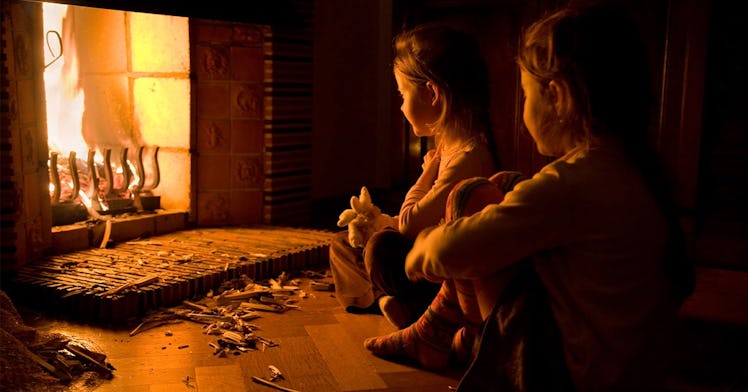Don’t Touch the Thermostat! Heating Bills Will Explode This Year
Get ready for a cold, pricey winter season. Here's why.

Last winter, warmer-than-average temperatures and the pandemic-induced economic slowdown that drastically lowered demand resulted in lower heating bills for American families.
This year, the weather is expected to be colder even as already surging energy prices continue to climb. It all adds up to a grim reality: staying warm will be decidedly more expensive this year than it was last winter.
How Much More Expensive is this Winter Going to Get?
According to the Winter Fuels Outlook, a document published by the U.S. Energy Administration, nearly half of households that heat primarily with natural gas will spend an average of 30 percent more than they did last winter. That estimate jumps to 50 percent if there’s a 10 percent colder-than-average winter. But even if temperatures are 10 percent above normal, natural gas households are still estimated to pay 22 percent more in heating bills.
Similar average increases are expected in households that heat by electricity (six percent), propane (54 percent), and heating oil (43 percent). In other words, our wallets are about to take a whooping.
In the past year, the price of natural gas has risen by 91 percent, heating oil 115 percent, and propane an astonishing 148 percent, per the New York Times. According to Bureau of Labor Statistics calculations, the overall energy index is up 24.8 percent between September 2020 and September 2021, with fuel oil prices a whopping 42.6 percent higher.
The reasons for these price increases are esoteric—mismatched supply and demand as economies recover from the pandemic, lower global fuel inventories, producer incentives to let prices rise—but the resulting higher energy bills in a still-recovering economic climate are not.
The widespread pain will be exacerbated by the rising prices of other commodities families need, from food to housing to cars, during the current inflationary period.
Is the Government Going to Do Anything About It?
This bleak forecast has spurned leaders on the federal level into action. A coalition of senators from New England, the region most affected by fluctuating energy prices during the winter, sent a letter to the White House last month urging “federal action to address the heating needs of our country’s households as we approach and enter the upcoming winter season.” They asked for “targeted actions” including releasing petroleum and home heating oil from governmental reserves and limiting how much natural gas American producers can export.
The Biden administration has released 90 percent of the $3.75 billion dedicated to the Low Income Home Energy Assistance Program, which provides funds directly to families. Funding has been allocated to the program early this year, as progress on the overall budget stalled while cold weather crept closer and closer.
But the past year has shown that even broadly popular and highly effective government interventions either don’t happen (Medicare expansion), require incredible amounts of political machination to continue (the child tax credit, assuming the Build Back Better Act passes), or are simply allowed to end (stimulus payments). In an environment in which people can’t depend on their government to protect them, it’s necessary to learn how to combat threats on their own.
What Can You Do in the Meantime To Bring Down Your Heating Costs?
When the threat is potentially ruinous, rising home heating costs, there are several things to try. Turning down the thermostat is the easiest, most obvious step, and installing a programmable thermostat if you don’t have one is also fairly simple. Battening down the proverbial hatches is also a good idea: sealing drafts around windows and doors and checking the attic and the basement for leaks where they can often go undetected.
If you’re in a position to spend more money right now, upgrading your heating system to a more efficient model is a big upfront expense that can save you money in the long term. Additionally, some states and utility companies might also offer personal consultation that can identify the specific areas in which your home can be made more energy-efficient and therefore cheaper to heat.